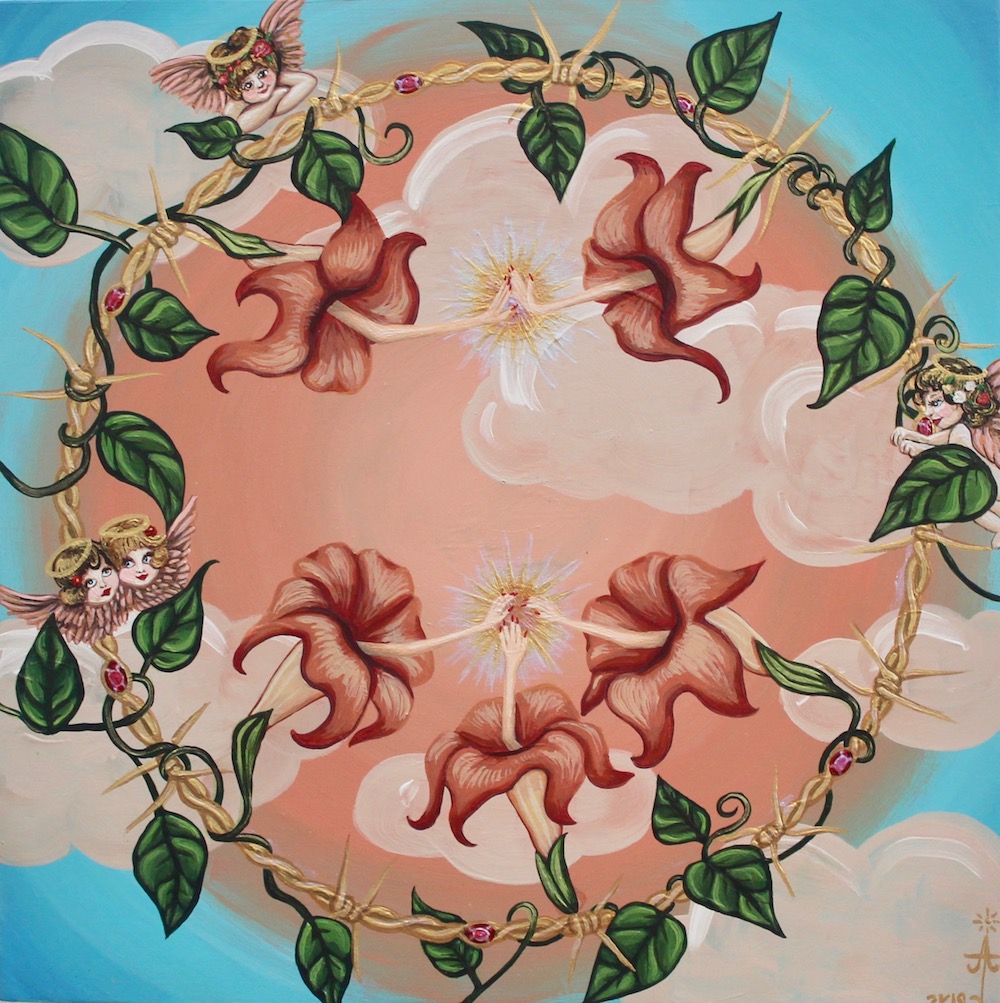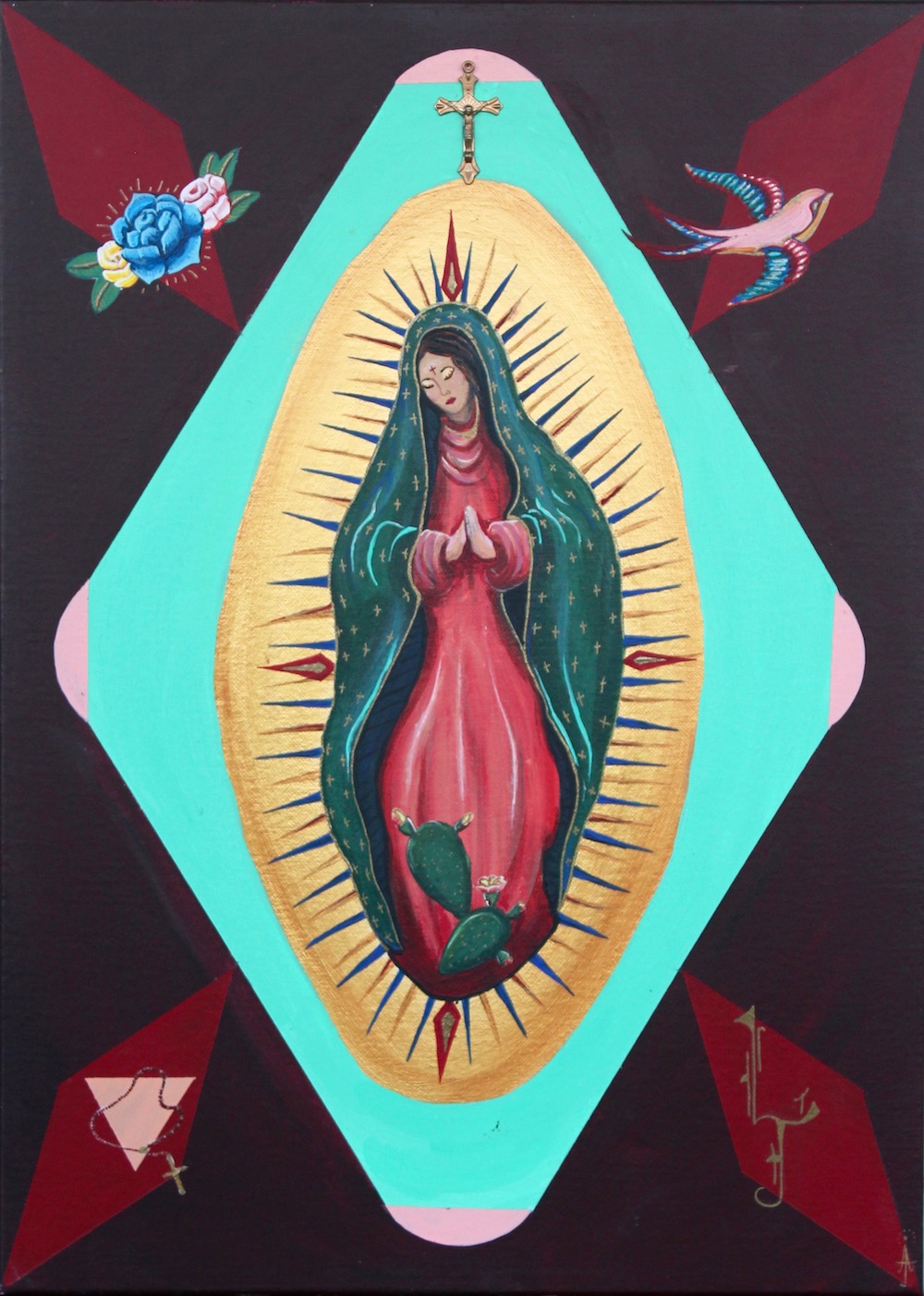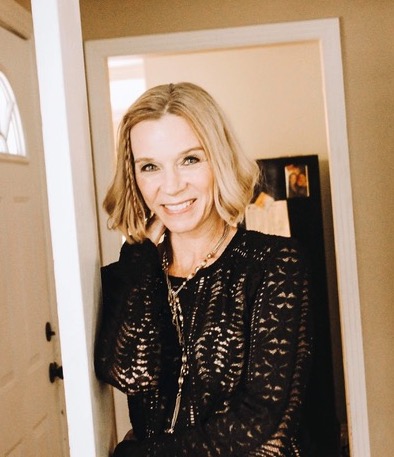Essay by Catherine Vance
Unexpected Comfort Inside an Evangelical Community

In September of 2018, I found myself sitting with a group of women at a Christian megachurch in Friendswood, Texas. We were in a children’s classroom, and behind me was a six-foot plush giraffe and a toy kitchen. Outside, the mild air and blue sky of a Gulf Coast evening beckoned, and I would much rather have been taking a walk than listening to a woman tell how she had fallen off the sobriety wagon and gotten another DUI. I was not a member of the congregation.
It was my therapist who presented the megachurch program, called Celebrate Recovery, to me as an option I might explore. I had been saying that maybe I needed to have a support group. I wanted to talk to other people, especially other women, who had experienced the kind of trauma and dysfunction that was causing me to leave my marriage.
My husband had cheated on me, but I didn’t find out about it until he had a psychic break. Three years previously, he had walked into my study and stood there trembling. “I want to make a confession,” he said, as if I were a priest. Affairs and indiscretions came tumbling out of a compartment in his broken brain. I’d been living in a mine field, it seemed, and now all the bombs were going off at once. I felt my whole body get hot, and I clutched the desk, sure I was going to disintegrate. He had betrayed me, but he was also ill.
I had been trying to accept this new reality of my marriage, to not fall apart from anger and grief. I wanted to understand how his absent father and the influence of his violent, unstable mother had affected his adult behavior before I summarily divorced him. I didn’t know anyone who had been through something like I had, not just the pain of my husband’s revelations, but his mental illness that also broke into the open. My therapist knew a lot about how a damaged childhood could lead to adult infidelity, as well as to drug and alcohol abuse. He worked at Star of Hope, a mission for the homeless in Houston. He knew about people who had fallen off the edge of life and consequently suffered from depression and dissociation, from addictions. My husband was a high-functioning professional, but like the residents at Star of Hope, his traumas at a young age had taken their toll.
We went around the circle and one by one the women said, “My name is Barbara, Maria, Lakeisha—and I am a grateful believer in Jesus Christ.” Each woman shared the problem or story that had brought her there. One was recovering from a meth addiction. Another had lost custody of her child. A third was struggling with domestic violence. When they got to me, I said, “My name is Catherine, and I’m here to listen and learn. I’m on the verge of leaving my marriage.”
This was a fundamentalist environment, and I’m a Unitarian, so I had my doubts about participating. “I’m not on board with traditional Christian approaches to treatment and recovery,” I’d told my therapist. “That’s not my theology anymore.” I grew up a liberal Presbyterian in South Texas, so I was not afraid of Christian fundamentalists, per se, or of people who talked of having a personal relationship with Jesus Christ. But I’d never been to a fundamentalist megachurch before. Truth be told, I was a little afraid of these places because of the views they sometimes supported: Build a wall. Reinforce the Second Amendment. Be wary of Muslims. Identifying as transgender is just WRONG. I associated evangelicals with televised pastors shouting from a stage, with an auditorium of people who read the Bible literally, prayed theatrically, and spoke in tongues.
At the Celebrate Recovery church, which looked more like an event center, a worship service came before the sharing circle. When I first walked through the double doors, I was immediately skeptical about any benefit I might receive. Here was a lobby full of folks munching on pepperoni pizza and drinking iced tea. A plump blonde woman in a besparkled denim jacket made a beeline for me. She pointed to the name tag table. “We’re so glad you’re here,” she said. “And please help yourself to some food before you head on in.”
I filled out my name tag and picked up a paper plate. “Thanks,” I told the man serving. My piece of pizza was as limp as my expectations. “Sure thing,” he said. “Come back next week. It’ll be Chick-Fil-A. We alternate.”
I glanced through another set of doors and saw the well-lit stage I had envisioned, complete with a four-piece band and a singer in tights and a short skirt. The drummer was banging on his kit, testing out his rhythms, while church-goers buzzed around a field of folding chairs, shaking hands and clapping each other on the shoulder. A movie-sized screen loomed behind the band.
This was going to be very different from my experience of a polished wood and red-carpeted sanctuary, from the calm Calvinist hymns and restrained intellectual sermons I grew up hearing in my Presbyterian Church. And, looking at the flier an usher handed me, it was certainly going to be the polar opposite of the Unitarian way of believing. “Testimony at 7:30,” it said. “The eight recovery principles based on the Beatitudes,” it said. Unitarians believe in personal creeds, in a “free and responsible search for truth and meaning.” We come from all kinds of traditional religious backgrounds, from atheism and humanism too. Jesus was welcome, but he was only one of many options.
Still, over the years I’ve often felt liberals are just like fundamentalists in one way: we believe we’re right. As a Unitarian, I give lip service to the idea of diversity of views, but my stand on spirituality and social justice issues is very much to the left. I abhor conversations about women following male leadership, about the “sin” of homosexuality, about people “going to hell.” I was convinced I had a straight-er, if not The Straight, line to the Truth. But I was here now, and I wanted to try that support group. So I went inside and took a place in a folding chair.
Soon the show got started. “The never-ending overwhelming reckless endless love of God,” the girl sang. The words appeared on the giant screen. Some attendees knew the song so well they squeezed their eyes shut while they sang. They kept time with the palms of their hands over their heads.
After that, an inspirational video of the Duck Dynasty patriarch talking about his drinking problem came on. He’s known for his right-wing conservatism, and I almost left. If this was what it was going to be, I was outta here, but then it was time for a speaker, a young woman. The huge room got very quiet. I was astonished at the things she revealed; her level of exposure humbled me. She told a story of her terrible relationship with her father, her parents’ constant fighting, and how she acted out that pain with bad decisions. She spoke of reaching her lowest point. “I drank too much, I slept with married men. I had turned my back on God,” she told us. Even though she spoke in evangelical terms, I was deeply moved. And when I looked around, I could see people were paying attention, sometimes with tears in their eyes. The young man sitting next to me put his face in his hands as he listened. In the row ahead, two elderly women shook their heads in commiseration and reached for each other’s hand. They were wearing matching flowered dresses, as if they were young sisters.
If I suspended my reservations about the cloud of Jesus hanging over it all, this openness and vulnerability was powerful. People just wanted to be assured that whatever they had done, and however far they had fallen, and however much they were hurting, it was okay.
Unitarians don’t have the concept of the welcome sinner. We welcome people surely, and don’t judge their pasts, but there is an agreement that we will speak intellectually more than emotionally. We have a great sense of decorum and privacy and usually will not share our problems or openly acknowledge that we even have any, so what I had witnessed amazed me.
When the service was over, a man and a woman led me into a side room with some other newcomers. We sat there while they told their own personal stories of damage and wrongdoing. Steven, a lawyer in a vest and tie, had ruined three marriages and his own by his actions. He spoke of how he had no father to guide his life, of how he had been sexualized by an older female cousin at a young age. His story had parallels to my husband’s, and that struck me as a sign (in the evangelical sense, I laughed to myself) that I was meant to be here. The woman, Trish, who had a broken foot that she explained away as “something stupid,” was a recovering alcoholic who dealt with anger management and was on her fourth marriage. These are not the kinds of things that get spoken about in my church.
My hosts referred to Jesus’ story about the shepherd who had left his flock of 100 and gone to find that one metaphorical lost sheep. If I wanted to be found, Jesus was here to help me.
Afterward, Trish took me alone into a little chapel. “Do you want to talk about why you’re here?” she started. I told her a bit about the therapist’s referral and that while I didn’t have any addictions I was dealing with, I was almost certainly leaving my marriage. “He cheated on me,” I said, “but I can see that to a great degree his behavior came from somewhere, from things that happened in his childhood. He’s like Steven. I want to forgive him, but I don’t think I can stay with him. He’s not who I thought he was, and I’m too wounded.”
Trish pushed her lips together in sympathy and looked at me. “Can I pray for you?” she asked.
I saw this coming, but I was not prepared for the response I had. I didn’t believe that Jesus took all my troubles away. But this woman was going to take the time to put my issues front and center in the universe, think about them, and put her whole being into well-wishing she called “praying to Jesus.” That moved me to tears.
I was a stranger to her. She had made my vulnerability welcome. I was no longer standing up, smiling politely, and saying, “how do you do.” Her words started, and I felt her absolute sincerity. I bent over my legs and put my head down and cried. I was able to let go. It was raw, and it helped me. She gave me something I had apparently needed, even though this was not my God, not my tradition. She was just caring for me.
People will come to church for the emotion and the chance to be fragile as well as for a place for it to be okay to be flawed. Whatever you want to say about evangelical theology and the politics that often accompany it, the services have a visceral quality that can be riveting and releasing and bonding. Evangelicals get their emotional needs met; they feel seen in the reality of their lives. Humility is a powerful thing to experience. I celebrate my almost-recovery from trauma, and for that, I give some thanks to the fundamentalists. It doesn’t matter that their beliefs are different from mine. It was just good, at long last, to be seen.

Art Information
- “Take Care of Your Light” and “The Virgin” © Audrey Jackson; used by permission.
 Catherine Vance lives and writes in Houston, Texas. She was a recipient of the Dobie-Paisano Award from the Texas Institute of Letters. Her work has appeared in Defunkt Magazine, Synkroniciti, The Write Launch, Sad Girls Club, Wraparound South, and elsewhere. In 2019 she took an interfaith, interracial group of women to the Alabama Civil Rights Trail for the purpose of facilitating dialogue across religious and racial boundaries. She is currently completing a memoir.
Catherine Vance lives and writes in Houston, Texas. She was a recipient of the Dobie-Paisano Award from the Texas Institute of Letters. Her work has appeared in Defunkt Magazine, Synkroniciti, The Write Launch, Sad Girls Club, Wraparound South, and elsewhere. In 2019 she took an interfaith, interracial group of women to the Alabama Civil Rights Trail for the purpose of facilitating dialogue across religious and racial boundaries. She is currently completing a memoir.
For more information, please visit Catherine Vance’s website.
